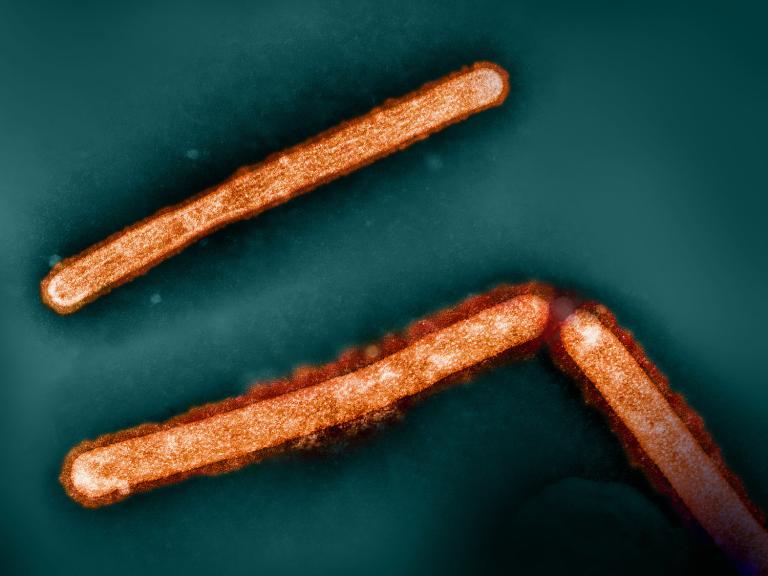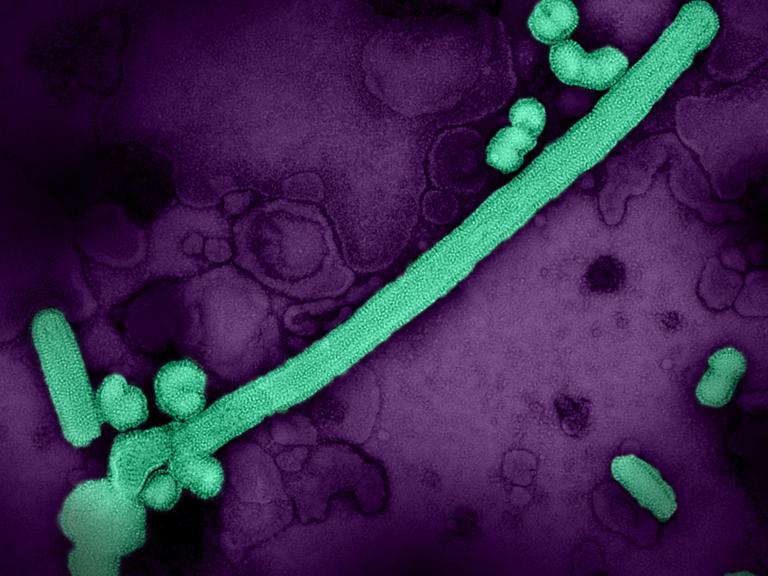Seasonal influenza, or flu, is a highly contagious respiratory illness caused by influenza viruses that infect the nose, throat and lungs. The two main types of influenza viruses—types A and B—are the viruses that typically spread in people (human influenza viruses) and cause annual flu outbreaks. Each year, influenza causes millions of illnesses worldwide and, in the United States, results in thousands of hospitalizations and deaths. Influenza is especially dangerous for people 65 years and older, young children and people with certain health conditions, such as heart disease or asthma.
An influenza pandemic occurs when a new influenza virus emerges that is able to infect and spread easily from person to person and to which most of the global population does not have immunity. The last known influenza pandemic occurred in 2009 with the emergence of the H1N1 influenza virus. Research to find new and improved ways to diagnose, treat and prevent seasonal influenza and novel influenza viruses with pandemic potential is essential to protecting the public health.
Highlights

Single Dose of Broadly Neutralizing Antibody Protects Macaques from H5N1 Influenza
A single dose of a broadly neutralizing antibody given prior to virus exposure protects macaques from severe H5N1 avian influenza, NIH scientists report.

Influenza A Viruses Adapt Shape in Response to Environmental Pressures
Influenza A virus particles strategically adapt their shape – to become either spheres or larger filaments – to favor their ability to infect cells depending on environmental conditions, a new NIAID study published in Nature Microbiology reveals.

NIAID Research Agenda for 2024 H5N1 Influenza
NIAID has mobilized its intramural and extramural-supported research infrastructure to provide scientific support to the U.S. Department of Agriculture (USDA) and the Department of Health and Human Services (HHS).
News Releases
- NIH Officials Assess Threat of H5N1
December 31, 2024
NIAID Now Blog
- Vaccine Protective Against H5N1 Influenza from Cattle
January 17, 2025 - NIAID Research Key to H5N1 Influenza Preparedness Efforts
December 20, 2024
Funded Research News
Volunteer for Clinical Trials
Find out how you can make a difference by participating in clinical research to find new and improved ways to understand, detect, treat and prevent influenza.
Find featured NIAID influenza studies.
Visit ClinicalTrials.gov for a full list of influenza studies funded by NIH.
Related Public Health and Government Information
To learn about risk factors for the flu and current prevention and treatment strategies visit the MedlinePlus flu site.



